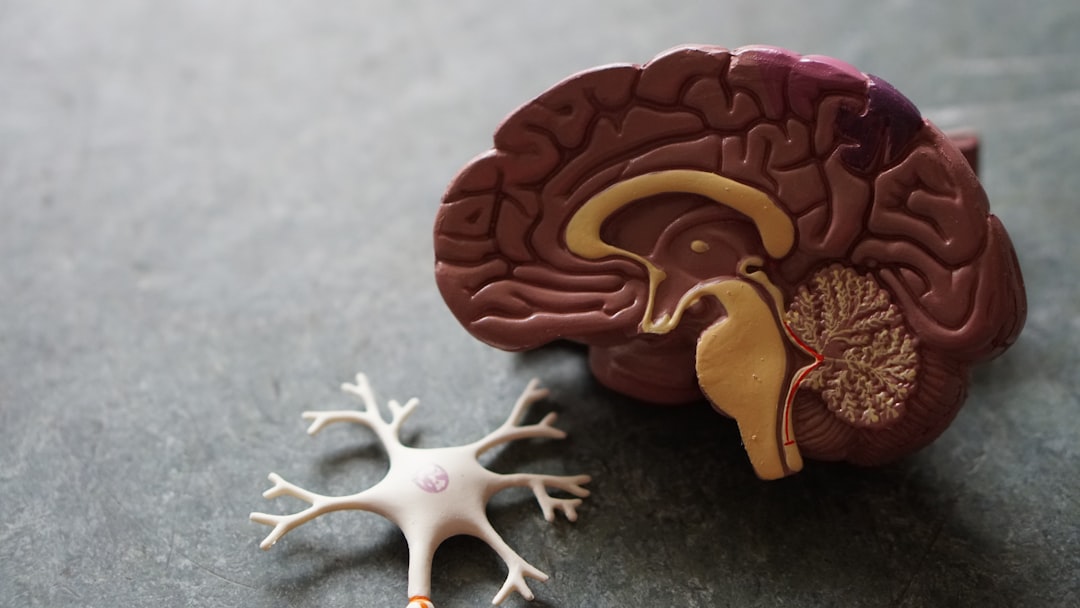ADHD, or Attention Deficit Hyperactivity Disorder, is a neurodevelopmental disorder that affects both children and adults. It is characterized by symptoms such as difficulty paying attention, impulsivity, and hyperactivity. People with ADHD may struggle with organization, time management, and maintaining focus on tasks. On the other hand, IBS, or Irritable Bowel Syndrome, is a common gastrointestinal disorder that affects the large intestine. It can cause symptoms such as abdominal pain, bloating, diarrhea, and constipation. Both ADHD and IBS can have a significant impact on a person’s daily life, making it important to understand the conditions and how they can be managed.
ADHD and IBS are both complex conditions that can have a significant impact on a person’s physical and mental well-being. While ADHD is often associated with difficulties in attention and impulse control, IBS can cause discomfort and distress due to gastrointestinal symptoms. It’s important to recognize that both conditions can coexist in the same individual, leading to additional challenges in managing symptoms and maintaining overall health. Understanding the nature of these conditions is crucial in order to develop effective strategies for managing symptoms and improving quality of life.
Key Takeaways
- ADHD and IBS can often coexist and understanding the relationship between the two conditions is important for effective management.
- Making lifestyle and dietary changes, such as regular exercise and a balanced diet, can help alleviate symptoms of both ADHD and IBS.
- Stress management techniques, such as mindfulness and relaxation exercises, can be beneficial for managing symptoms of both conditions.
- Medication and therapy options, tailored to each individual’s needs, can be effective in treating ADHD and IBS symptoms.
- Creating a supportive environment at home and work can greatly improve the quality of life for individuals with ADHD and IBS.
Lifestyle and Dietary Changes
Making lifestyle and dietary changes can have a significant impact on managing symptoms of both ADHD and IBS. For individuals with ADHD, establishing a routine and structure can help in managing symptoms of impulsivity and inattention. This can include setting specific times for meals, work, and leisure activities. Additionally, regular exercise and physical activity can help in reducing hyperactivity and improving focus. For individuals with IBS, dietary changes such as avoiding trigger foods like dairy, gluten, and high-fat foods can help in managing gastrointestinal symptoms. Eating smaller, more frequent meals and staying hydrated can also help in reducing discomfort associated with IBS.
In addition to dietary changes, stress management techniques such as mindfulness meditation, deep breathing exercises, and yoga can be beneficial for individuals with both ADHD and IBS. These techniques can help in reducing stress levels, which can exacerbate symptoms of both conditions. It’s important to note that lifestyle and dietary changes may need to be personalized based on individual needs and preferences. Consulting with a healthcare professional or a registered dietitian can provide guidance in making appropriate changes to manage symptoms effectively.
Stress Management Techniques
Stress management is crucial for individuals with ADHD and IBS as stress can exacerbate symptoms of both conditions. Mindfulness meditation is a powerful tool for managing stress and improving overall well-being. By practicing mindfulness, individuals can learn to focus on the present moment and reduce anxiety about the future or regrets about the past. Deep breathing exercises can also help in reducing stress levels by activating the body’s relaxation response. By taking slow, deep breaths, individuals can calm their nervous system and reduce the physiological effects of stress.
Yoga is another effective stress management technique that combines physical movement with mindfulness and deep breathing. The practice of yoga has been shown to reduce stress, anxiety, and depression while improving overall physical health. Engaging in regular physical activity such as walking, running, or swimming can also help in reducing stress levels and improving mood. It’s important for individuals with ADHD and IBS to find stress management techniques that work best for them and incorporate them into their daily routine to effectively manage symptoms.
Medication and Therapy Options
| Treatment Option | Description | Effectiveness |
|---|---|---|
| Medication | Prescribed drugs to manage symptoms | Varies depending on individual response |
| Therapy | Counseling or psychotherapy to address underlying issues | Effective for many individuals |
| Combination | Using both medication and therapy for comprehensive treatment | Can be highly effective |
For individuals with ADHD, medication such as stimulants (e.g., methylphenidate, amphetamine) or non-stimulants (e.g., atomoxetine, guanfacine) may be prescribed to help manage symptoms of inattention, hyperactivity, and impulsivity. These medications work by affecting neurotransmitters in the brain to improve focus, attention, and impulse control. In addition to medication, therapy such as cognitive-behavioral therapy (CBT) can be beneficial for individuals with ADHD. CBT can help in developing coping strategies for managing symptoms and improving overall functioning.
For individuals with IBS, medication such as antispasmodics (e.g., dicyclomine), laxatives (e.g., polyethylene glycol), or antidepressants (e.g., amitriptyline) may be prescribed to help manage gastrointestinal symptoms. These medications work by targeting specific symptoms such as abdominal pain, bloating, diarrhea, or constipation. In addition to medication, therapy such as gut-directed hypnotherapy or cognitive-behavioral therapy (CBT) can be beneficial for individuals with IBS. These therapies can help in managing stress-related symptoms and improving overall quality of life.
Creating a Supportive Environment
Creating a supportive environment is essential for individuals with ADHD and IBS to effectively manage their symptoms and improve their overall well-being. This can include educating family members, friends, and coworkers about the nature of these conditions and how they can impact daily functioning. By fostering understanding and empathy, individuals with ADHD and IBS can feel more supported in managing their symptoms. Additionally, creating a structured and organized environment at home and work can help in managing symptoms of ADHD such as impulsivity and inattention.
For individuals with IBS, creating a supportive environment may involve making accommodations for dietary restrictions or bathroom access when needed. It’s important for individuals with IBS to feel comfortable discussing their needs with those around them in order to effectively manage their symptoms. Creating a supportive environment also involves seeking out support groups or online communities where individuals with ADHD or IBS can connect with others who understand their experiences. By building a network of support, individuals can feel less isolated and more empowered in managing their conditions.
Time Management and Organization Skills

Time management and organization skills are crucial for individuals with ADHD to effectively manage their symptoms and improve their overall functioning. This can include using tools such as planners, calendars, or smartphone apps to keep track of appointments, deadlines, and tasks. Breaking down larger tasks into smaller, manageable steps can also help in reducing feelings of overwhelm and improving productivity. Additionally, setting specific routines for daily activities such as meals, exercise, and sleep can help in maintaining structure and reducing impulsivity.
For individuals with IBS, time management skills can help in planning meals and bathroom breaks to accommodate gastrointestinal symptoms. This may involve scheduling meals at regular intervals to prevent discomfort or planning activities around access to restroom facilities when needed. Organization skills such as keeping track of trigger foods or symptom patterns can also help in managing symptoms effectively. By developing effective time management and organization skills, individuals with ADHD and IBS can improve their overall functioning and quality of life.
Seeking Professional Help
Seeking professional help is important for individuals with ADHD and IBS to receive appropriate diagnosis, treatment, and support. This may involve consulting with a healthcare professional such as a primary care physician, gastroenterologist, psychiatrist, or psychologist who has experience in managing these conditions. A thorough evaluation may be necessary to determine the most appropriate treatment options based on individual needs and preferences. Additionally, seeking out therapy from a licensed mental health professional can provide valuable support in developing coping strategies for managing symptoms.
It’s important for individuals with ADHD and IBS to advocate for themselves in seeking professional help and finding the right healthcare providers who understand their unique needs. This may involve asking for referrals from trusted sources or researching healthcare providers who specialize in managing these conditions. By seeking professional help, individuals with ADHD and IBS can receive the support they need to effectively manage their symptoms and improve their overall well-being.
In conclusion, understanding ADHD and IBS is crucial for developing effective strategies to manage symptoms and improve overall well-being. Lifestyle changes such as establishing routines, dietary modifications, stress management techniques, medication options, therapy options, creating a supportive environment, time management skills, organization skills, and seeking professional help are all important components of managing these complex conditions. By taking a comprehensive approach to managing ADHD and IBS, individuals can improve their quality of life and effectively navigate the challenges associated with these conditions.
If you or a loved one is struggling with both ADHD and IBS, you’re not alone. Research has shown a potential link between the two conditions, and understanding this connection can be crucial in managing symptoms effectively. In a recent article on ADHD-testing.com, experts delve into the relationship between ADHD and IBS, offering valuable insights and strategies for individuals dealing with both conditions. To learn more about this important topic, check out the article here.
FAQs
What is ADHD?
ADHD stands for Attention Deficit Hyperactivity Disorder. It is a neurodevelopmental disorder that affects both children and adults. Common symptoms include difficulty paying attention, hyperactivity, and impulsivity.
What is IBS?
IBS stands for Irritable Bowel Syndrome. It is a common gastrointestinal disorder that affects the large intestine. Symptoms may include abdominal pain, bloating, gas, diarrhea, and constipation.
Is there a link between ADHD and IBS?
Recent studies have suggested a potential link between ADHD and IBS. Some research has found that individuals with ADHD may be at a higher risk of developing IBS, and vice versa. However, more research is needed to fully understand the relationship between the two conditions.
What are the potential causes of the link between ADHD and IBS?
The potential link between ADHD and IBS may be due to shared underlying factors such as genetic predisposition, alterations in the gut-brain axis, and dysregulation of neurotransmitters. However, the exact causes of the link are still being investigated.
How are ADHD and IBS treated?
ADHD is often treated with a combination of medication, therapy, and lifestyle changes. IBS treatment may include dietary modifications, stress management, medication, and probiotics. It is important for individuals with either condition to work with healthcare professionals to develop a personalized treatment plan.














